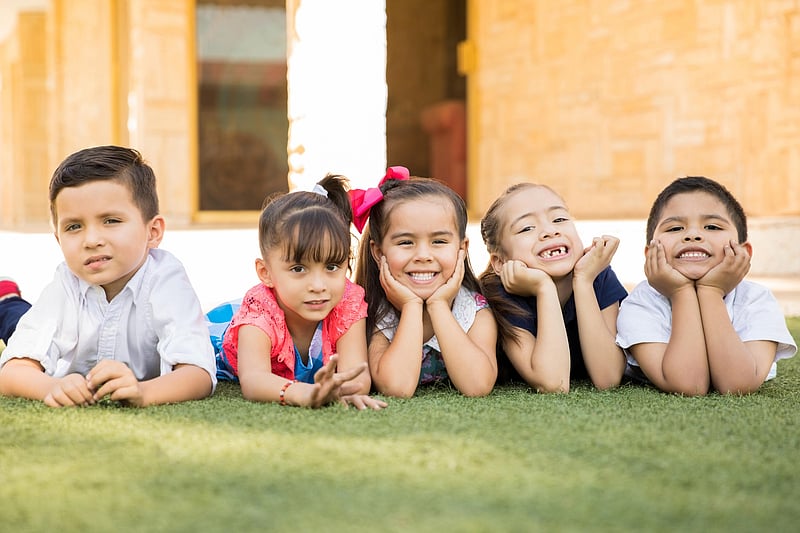Get Healthy!

- Cara Murez
- Posted August 17, 2022
The More Words Your Preschooler Knows, the Better They Do in Class
Kids who enter preschool with good vocabulary and attention skills have a head start on academic success.
That's the takeaway from a new study of nearly 900 4-year-olds and their ability to engage with teachers and peers, as well as their involvement in classroom tasks.
"The levels of vocabulary skills and inhibitory control that children exhibit in the fall (autumn) of the preschool years matter for their classroom engagement in different ways,"said lead study author Qingqing Yang, a graduate student in the department of human sciences at Ohio State University in Columbus.
The study team found that preschoolers who had learned how to suppress inappropriate behavior and block out distracting thoughts or feelings were more likely to get involved with classroom tasks and have more positive interactions.
Having a wider range of words affected children's ability to engage with their teachers, according to the report published online Aug. 16 in the journal Early Education and Development.
"Children with lower inhibitory control and vocabulary skills appear to be at risk of displaying different kinds of non-engaging behaviors,"Yang said in a journal news release. "This suggests that teachers need to be able to recognize who may be susceptible to more negative engagement. They also need to facilitate classroom engagement for all children."
The study found that negative engagement in the classroom shapes vocabulary learning. And that creates a link between weak inhibitory control in the fall and poor skills in vocabulary and control in the spring.
"Given the large amount of time that children spend in the classroom, these findings have implications for optimizing children's vocabulary and inhibitory control development,"Yang said.
The study included 443 girls and 452 boys from diverse racial and ethnic backgrounds in 223 classrooms in 10 locations. Children were assessed when they started preschool in the fall and again the following spring.
The investigators used several measures to gauge kids' skills. In one, a child was instructed to tap once when an instructor tapped twice, as well as the reverse. Children were also asked to name objects in pictures.
The researchers observed each child for about four hours, rating their engagement with teachers, peers and tasks. Signs of positive engagement included sociability, communication and self-reliance with tasks. Negative engagement included conflict with teachers and peers, as well as off-task behaviors.
The study authors said their findings are an important step forward, noting that "a small change in children's skills and experiences" early on can have a dramatic effect on future academic success.
They said policymakers should consider ways to better train teachers to identify pupils who lack these skills early on and provide the right support to help them thrive.
More information
The U.S. Department of Education has more on preparing your child for preschool.
SOURCE: Early Education and Development, news release, Aug. 17, 2022







